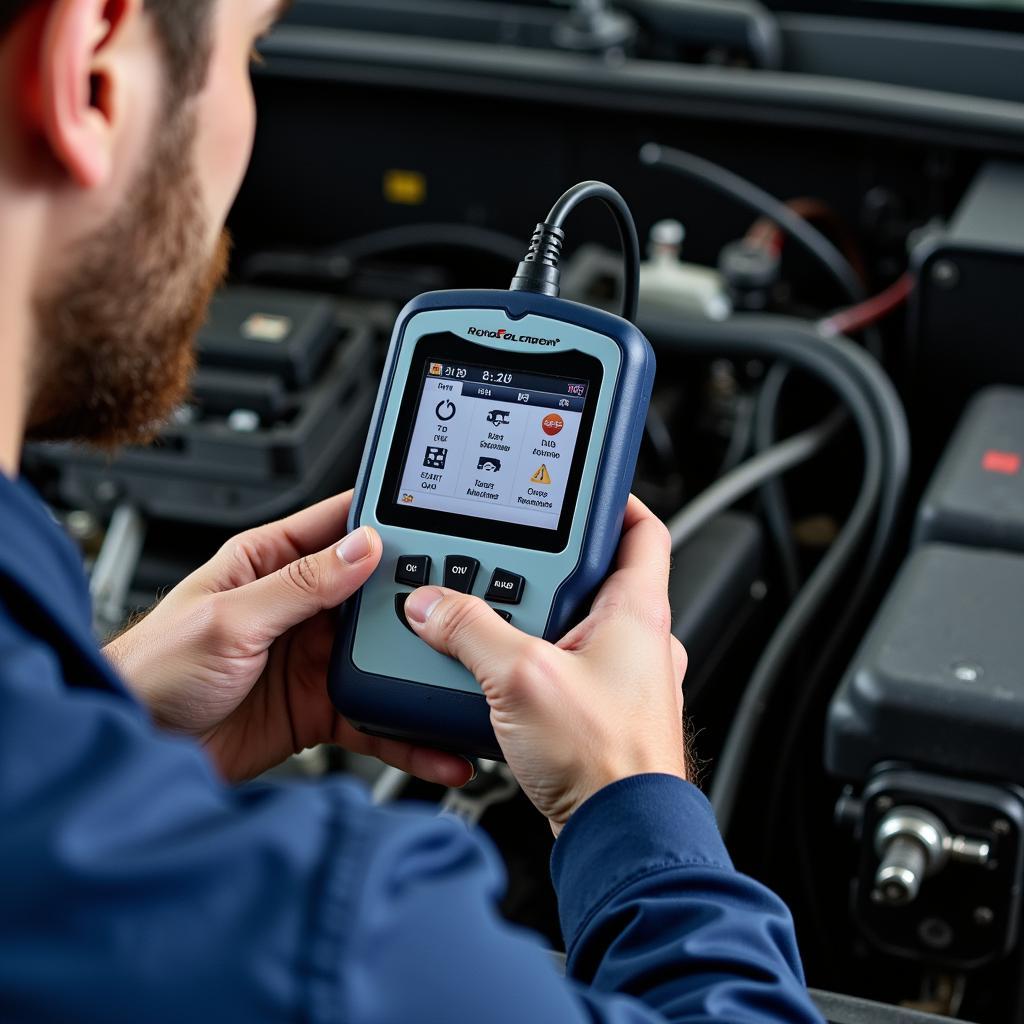“Heavy fixes his car” might conjure up images of a cartoon mechanic effortlessly hoisting engines or a superhero effortlessly bending steel. However, in reality, major automotive repairs are complex and require specialized knowledge, tools, and often, a hefty budget. Whether you’re a car enthusiast tackling a DIY project or a car owner facing a daunting repair estimate, this guide will equip you with the information you need to navigate the world of major car repairs.
Decoding “Heavy Fixes”: What Constitutes a Major Repair?
While a flat tire or a burnt-out headlight can be considered minor inconveniences, major car repairs delve into the heart of your vehicle’s vital systems. These repairs often involve components crucial for your car’s operation, safety, and roadworthiness. Let’s break down some common culprits:
Engine and Transmission Overhauls: The Heart and Soul of Your Car
The engine and transmission are arguably the most critical parts of your vehicle.
- Engine Overhaul: A complete engine overhaul involves disassembling, inspecting, cleaning, repairing, and reassembling the entire engine. This is a labor-intensive process and may be necessary due to issues like severe engine damage, catastrophic failure, or extensive wear and tear.
- Transmission Repair/Replacement: The transmission is responsible for transferring power from the engine to the wheels. A failing transmission can manifest as slipping gears, rough shifting, or complete immobility.
Suspension and Steering System Repairs: Maintaining Control and Stability
- Suspension System: The suspension ensures a smooth ride by absorbing shocks from bumps and dips in the road. Major repairs might involve replacing worn-out shocks, struts, springs, or control arms.
- Steering System: The steering system allows you to control the direction of your car. Significant repairs in this area could include replacing the steering rack, tie rods, or even the steering column.
Electrical System Malfunctions: The Brain and Nervous System of Modern Cars
Modern cars are heavily reliant on intricate electrical systems.
- Wiring Harness Issues: A damaged wiring harness can lead to a cascade of electrical gremlins, affecting everything from lighting to engine performance.
- ECU Problems: The Engine Control Unit (ECU) is essentially the brain of your car. A malfunctioning ECU can lead to a variety of issues and often requires specialized diagnostic equipment and expertise to repair or replace.
 Automotive Electrical System Diagnostics
Automotive Electrical System Diagnostics
Facing a Major Car Repair? Essential Advice
- Understand the Diagnosis: Don’t hesitate to ask your mechanic for a detailed explanation of the issue, including the specific components involved and the reasons for the recommended repair.
- Get Multiple Quotes: Major repairs can be expensive. Obtain quotes from several reputable mechanics or repair shops to compare prices and ensure you’re getting a fair deal.
- Consider the Value of Your Car: Weigh the cost of the repair against the overall value of your vehicle. In some cases, an expensive repair might not be financially justifiable for an older car.
- Research Your Options: Depending on the repair, you might have options like rebuilding or replacing components. Each option comes with its own set of cost implications and potential benefits.
“Knowledge is your best tool when facing a major car repair,” says master mechanic John Miller. “Don’t be afraid to ask questions and empower yourself to make informed decisions about your vehicle.”
DIY or Delegate?
While some car enthusiasts relish the challenge of tackling major repairs themselves, most significant repairs are best left to qualified professionals. Working on critical car systems requires specialized tools, in-depth knowledge, and a safe working environment. Attempting complex repairs without the necessary expertise can lead to further damage, safety hazards, and ultimately, higher repair costs in the long run.
Preventing Major Car Repairs: Proactive Maintenance is Key
While some major car repairs are unavoidable due to accidents or unforeseen circumstances, many can be prevented with diligent car care.
- Stick to Your Service Schedule: Adhering to your car’s recommended maintenance schedule is crucial. Regular oil changes, fluid checks, and inspections can help identify minor issues before they escalate into major problems.
- Address Minor Issues Promptly: Ignoring a strange noise or a dashboard warning light might seem tempting, but addressing minor car issues promptly can prevent them from snowballing into major headaches down the road.
- Drive Responsibly: Aggressive driving habits, such as hard acceleration and braking, put unnecessary stress on your car’s engine, transmission, and brakes, potentially leading to premature wear and tear.
Conclusion
“Heavy fixes his car” might be a simple phrase, but it encapsulates the complexity and potential stress of major automotive repairs. By understanding the common culprits of major repairs, knowing how to navigate the repair process, and embracing preventative maintenance, you can keep your car running smoothly and avoid being caught off guard by unexpected breakdowns.
Remember, at AutoTipPro, we’re always here to help guide you through your automotive needs. Contact us at +1 (641) 206-8880 or visit our office at 500 N St Mary’s St, San Antonio, TX 78205, United States.
FAQs
1. How do I know if my car needs a major repair?
Obvious signs include unusual noises, fluid leaks, warning lights on your dashboard, and performance issues like difficulty starting or stalling.
2. How long do major car repairs typically take?
The timeframe can vary greatly depending on the complexity of the repair, the availability of parts, and the mechanic’s workload.
3. Can I drive my car with a major repair needed?
It depends on the specific issue. Some problems, if left unaddressed, can lead to further damage or even pose a safety risk. It’s always best to consult with a qualified mechanic for guidance.
4. Are used parts a good option for major repairs?
Using used parts can be a more affordable option, but it’s crucial to ensure they are from a reputable source and come with a warranty.
5. What kind of warranty should I expect on a major car repair?
Most reputable repair shops offer warranties on both parts and labor, typically ranging from 90 days to one year or more.





Leave a Reply